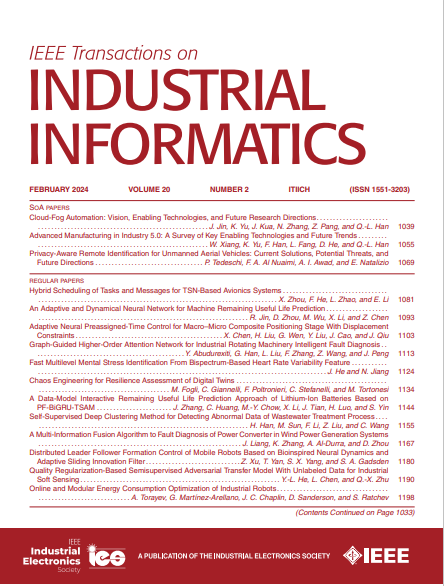网格约束下局部能源社区分布式能源聚合优化运行
IF 9.9
1区 计算机科学
Q1 AUTOMATION & CONTROL SYSTEMS
引用次数: 0
摘要
本文提出了一个框架,用于有效管理配电系统内运行的大量不同分布式能源(DERs),以优化当地能源社区(LECs)的运营并改善电网服务。首先,我们为der开发了聚合模型,以评估考虑其偏好、空间放置和时间行为的累积灵活性。随后,我们采用层次控制框架(HCF)对der的这些聚合灵活性进行有效调度。HCF涉及三个关键实体:电力公用事业(EU)运营商、社区聚合商(ca)和个体der。ca利用从各自lecc内的聚合der获得的灵活性来最小化运营成本,同时还要考虑分配网络的约束。另一方面,欧盟运营商协调从ca接收的调度设定值以及分解的der来调节配电系统节点电压并减少电力损耗,以增强电网服务。在改进的IEEE-123总线径向配电网上进行的数值模拟证明了我们的方法在有效管理DERs以实现成本效益运营和改善电网服务方面的有效性。本文章由计算机程序翻译,如有差异,请以英文原文为准。
Aggregation of Distributed Energy Resources for Optimal Operation in Local Energy Communities With Grid Constraints
This article presents a framework to efficiently manage a sizable fleet of diverse distributed energy resources (DERs) operating within distribution systems to optimize the operations of local energy communities (LECs) and improve grid services. First, we develop aggregation modeling for DERs to evaluate cumulative flexibility that considers their preferences, spatial placement, and temporal behavior. Subsequently, we employ a hierarchical control framework (HCF) to put these aggregated flexibility of DERs for their effective dispatching. The HCF involves three key entities: an electric utility (EU) operator, community aggregators (CAs), and individual DERs. CAs harness the flexibility obtained from the aggregated DERs within their respective LECs to minimize operational costs while also considering the distribution network constraints. On the other hand, the EU operator coordinates dispatch setpoints received from CAs along with the disaggregated DERs to regulate distribution system node voltages and reduce power losses to enhance grid services. Numerical simulations conducted on a modified IEEE-123 bus radial distribution network demonstrate the efficacy of our approach in effectively managing DERs for cost-efficient operations and improving grid services.
求助全文
通过发布文献求助,成功后即可免费获取论文全文。
去求助
来源期刊

IEEE Transactions on Industrial Informatics
工程技术-工程:工业
CiteScore
24.10
自引率
8.90%
发文量
1202
审稿时长
5.1 months
期刊介绍:
The IEEE Transactions on Industrial Informatics is a multidisciplinary journal dedicated to publishing technical papers that connect theory with practical applications of informatics in industrial settings. It focuses on the utilization of information in intelligent, distributed, and agile industrial automation and control systems. The scope includes topics such as knowledge-based and AI-enhanced automation, intelligent computer control systems, flexible and collaborative manufacturing, industrial informatics in software-defined vehicles and robotics, computer vision, industrial cyber-physical and industrial IoT systems, real-time and networked embedded systems, security in industrial processes, industrial communications, systems interoperability, and human-machine interaction.
 求助内容:
求助内容: 应助结果提醒方式:
应助结果提醒方式:


